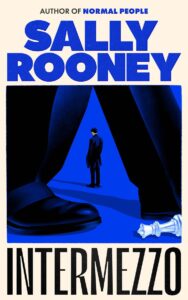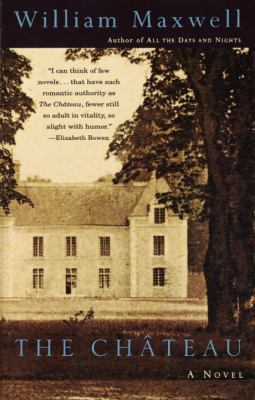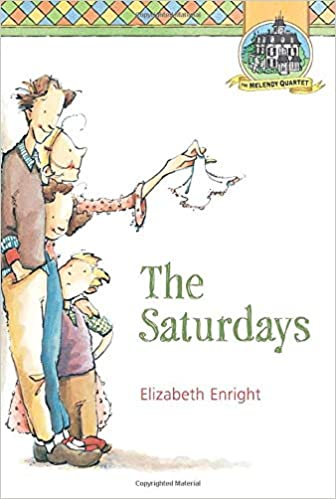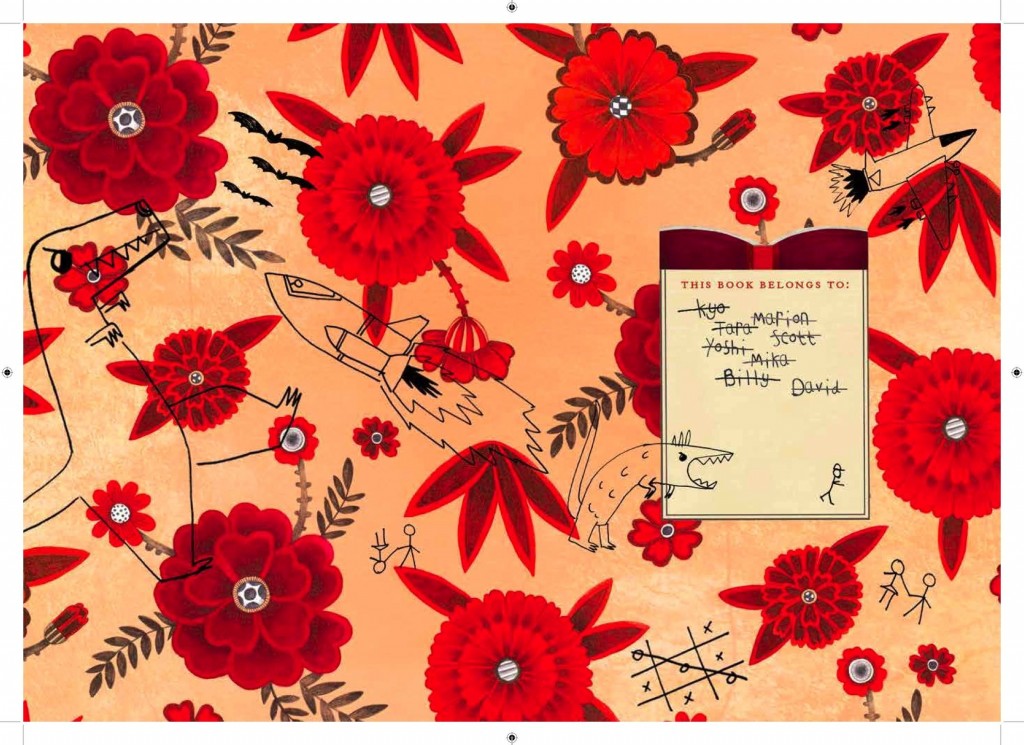November 13, 2024
Gets off the train half-drunk and it’s raining again…
“Gets off the train half-drunk and it’s raining again on the platform. Strikes him suddenly that he has no umbrella: and when, where. On the tram he had it. Station toilet he thinks, yes, messing with the lemonade. For Jesus’ sake, he’s had that thing years. He actually liked it. Climbs into a taxi, cash in his pocket, out towards the old ring road please.” —Sally Rooney, Intermezzo
June 15, 2022
Suddenly Barbara let out a cry, her umbrella was no longer on her arm.
“…Suddenly Barbara let out a cry, her umbrella was no longer on her arm. She distinctly remembered starting out with it, from the apartment, and she was fairly certain she had felt the weight of the umbrella on her arm as she stepped out of the taxi. She could not remember for sure but she thought she had laid it down in the china shop, in order to examine a piece of porcelain.
They left the steps of the Madeline, crossed through the traffic to the shop, and went in, The clerk Barbara spoke to was the not the one Harold had wanted her to ask. No umbrella had been found; also the clerk was not interested in lost umbrellas. As they left the shop, he said: “Don’t worry about it, You can buy another umbrella.”
“Not like this one,” she said The umbrella was for travelling, folded compactly into a third the usual length, and could be tucked away in a suitcase. “If only we’d gone to the Rodin Museum this afternoon, as we were intending to,” she said, “I’d never have lost it there.”
“He went back to the Madeleine and waited another quarter of an hour while she walked the length of the rue Royale, looking mournfully in shop windows and trying to remember a place, a moment, when she had put her umbrella down, meaning to pick it up right away….”
—William Maxwell, The Chateau
September 16, 2021
The Albatross
“Outside the moist air had become moister. A fine mist was driving down. Mrs. Oliphant disentangled an umbrella from her handbag and the tail of one of her furs. When it was opened the umbrella proved to be extremely large and deep. They walked under it close together, as under a small pavilion. “I’ve had it for twenty-five years,” Mrs. Oliphant told Randy. “It’s been lost once on a bus, twice on railway trains, and once at the London Zoo. But I always get it back. I call it the albatross.” —Elizabeth Enright, The Saturdays
(Literary Lost Umbrellas is one of my favourite Pickle Me This features, but it’s been awhile. So I was so excited to find this literary lost umbrella in our family read aloud tonight—and even better that this particular lost literary umbrella so resolutely refuses to stay lost. I love it. PS this book is great. I found it after googling “Books that are like The Penderwicks.)
January 15, 2018
“The umbrella exists in a state of flux…”
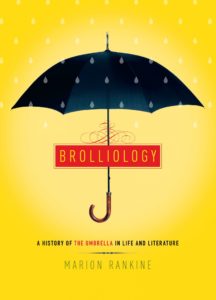 “Nowadays, in a time when most umbrellas aren’t worth the stealing and are tossed aside like sweet wrappers when they fail, umbrella theft and ‘frightful moralities’ have been largely replaced by general indifference. Like pens, plectrums [guitar pick: who knew?], and Tupperware containers, the umbrella often seems an entity that is not owned but exists in a state of flux, travelling from person to person, taken up and left behind according to various states (or absences) of mind. Think of umbrellas doing endless loops on the Circle line, the inevitable bundles in the corner of lost property offices, the umbrellas in the staff room that nobody seems to own, or forgetting which they do own, they are afraid to take one away lest it actually belong to someone else. I would suggest that modern-day umbrella ownership has less to do with a specific object than the category as a whole: one possesses an umbrella, not their umbrella.” -Marion Rankine, Brolliology: A History of the Umbrella in Life and Literature.
“Nowadays, in a time when most umbrellas aren’t worth the stealing and are tossed aside like sweet wrappers when they fail, umbrella theft and ‘frightful moralities’ have been largely replaced by general indifference. Like pens, plectrums [guitar pick: who knew?], and Tupperware containers, the umbrella often seems an entity that is not owned but exists in a state of flux, travelling from person to person, taken up and left behind according to various states (or absences) of mind. Think of umbrellas doing endless loops on the Circle line, the inevitable bundles in the corner of lost property offices, the umbrellas in the staff room that nobody seems to own, or forgetting which they do own, they are afraid to take one away lest it actually belong to someone else. I would suggest that modern-day umbrella ownership has less to do with a specific object than the category as a whole: one possesses an umbrella, not their umbrella.” -Marion Rankine, Brolliology: A History of the Umbrella in Life and Literature.
October 26, 2017
Dozens of Umbrellas
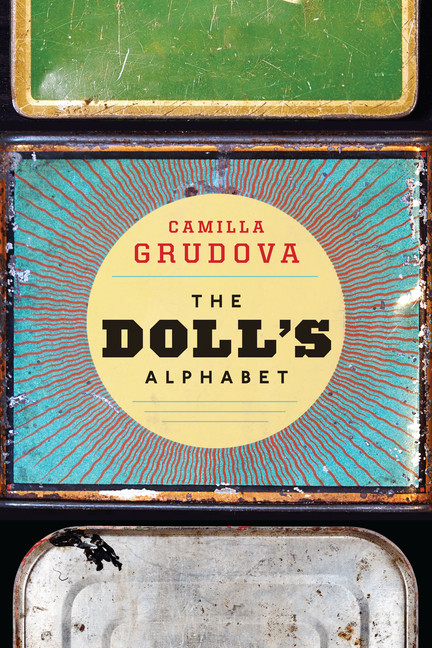
“In the meantime, I found work in a dollhouse shop. We sold tiny things to put in them, from lamps to Robert Louis Stevenson books with real microscopic words in them. Peter got a job in a graveyard, installing tombstones, digging graves, helping with Catholic burial processes, and cleaning up messes. He would find diaphragms, empty bottles of spirits, squirrel kinds left over from hawks’ meals, and dozens of umbrellas. He brought the umbrellas home, until our apartment started to look like a cave of sleeping bats. I had an umbrella sale one Saturday when he was at work:
ALL UMBRELLAS TWO DOLLARS AS IS
It was an overcast day so I did well for myself. ”
—From “The Mouse Queen,” by Camilla Grudova, in The Doll’s Alphabet
October 2, 2017
Pickle Me This goes to Edmonton

I lost my umbrella when I was in Edmonton, possibly in a bookshop, or somewhere en-route to the Hotel MacDonald, where I got to have fancy drinks with writer and blogger extraordinaire Shawna Lemay. So does that make it a literary lost umbrella, I wonder, even if it didn’t happen in fiction? Although I include the umbrella Virginia Woolf lost on a bus, and that wasn’t fiction either. Does it still count as a literary lost umbrella if it’s pocket-sized? Pocket-sized umbrellas just don’t seem all that literary. But they are particularly easy to lose.

Umbrella losses aside, however, as well as a minor mishap where I drank too much tea and managed to poison myself and spent an afternoon in bed in my hotel room, I had a wonderful time in Edmonton. (This was about two weeks ago. I’m a bit behind, blog-wise, and working hard on catching up.) I was invited for the Book Publishers Association of Alberta’s Annual Conference to give a presentation about why book blogs matter, and arrived in Edmonton on Thursday afternoon on a plane packed with women who were heading to some weird multi-level marketing conference for beauty products and obviously tried to convert me into their cult. (“Are you looking for your Plan B?” the woman sitting next to me on the plane was asking, and I’d never before considered how awful it would be to be trapped on a plane with people who were trying to convert you into their cult. I am still disappointed that I never thought to answer, “Are you peddling beauty products, sister? Cuz I don’t need no beauty products.”)

I had half a day to spend in a city I didn’t know yet, which is the most incredible kind of luxury, I think, in terms of time and opportunity. After finding my novel for sale in the airport bookshop (where the booksellers had even heard of it, or at least were very convincing in pretending they had…) a taxi delivered me to Whyte Avenue where I poked in shops and hung out in a Second Cup to charge my phone, and then I started walking, taking in the golden light in this place where Autumn comes earlier than it does where I live. Edmonton is beautiful, and it was a gorgeous, crisp fall day, and I had a very good time exploring on my own, making lines on a map that was new to me. When I reached the edge of the river valley, I was able to take in a great deal of the city at once, and it was gorgeous. I stopped at the High Level Diner for dinner, and it just happened to be Ukrainian night, so I got to have pirogies and borscht. And then I began my long long walk across the High Level Bridge with great dramatic clouds rolling in (see my first photo, above) and at this point I was pleased that I still had an umbrella.

As visiting bookstores is basically the reason I go anywhere, a trip to Audreys was the thing I most wanted to do in Edmonton, and it lived up to my amazing expectations. Although I must admit I’m partial to Audreys after my book was an Edmonton bestseller in April, and it was also pretty splendid to see it on the Staff Picks shelf. But even without these glorious details, I would have been happy to spend time browsing in Audreys, where I managed to find perfect gifts for each member of my family, and I bought Jen Powley’s memoir Just Jen and Claire Kelly’s debut poetry collection, Maunder, both of which would turn out to be very good choices.

Shawna met me at the bookstore, and then we went out for drinks, and had a delightful time. We’d met briefly at Shawna’s book launch in Toronto awhile back, but not exactly properly. However she is one of those bloggers that gives you the impression—with her candour, generosity, eloquence, thoughtfulness—that you know her. And I think I really did, because we had a terrific time together, never running out of things to talk about, and I could have talked forever, except that it was getting late and I was operating after a day of travel (planes and walking) and a two hour time difference. Luckily we got to keep on talking as Shawna kindly drove me to my hotel.

I saw the sun come up the next morning—I woke up at six so I could call my children before they headed off to school. There is nothing in the world quite like a prairie sky. And then I ordered room service and read books, and prepared for my presentation later that morning, which went very well, and it was so terrific to meet people in the Canadian book world with whom I communicate often and/or have been familiar with for years. I take for granted sometimes Canada’s hugeness, and that there are also these people I’ll never have the chance to meet face-to-face and then I do meet them and realize how powerful it is to bring people together and how much our culture benefits from these true connections being made. I loved Saskatchewan poet Brenda Schmidt‘s presentation about how social media has become her workbook—I identified so completely. And it was especially nice to be there to celebrate Alberta Books when I’ve been especially fond of them lately—Annie Muktuk and Other Stories and What Is Going to Happen Next are two stand-outs. It was a privilege to be part of it all, and hanging out in Edmonton. 
July 24, 2017
Lost Umbrella Empathy
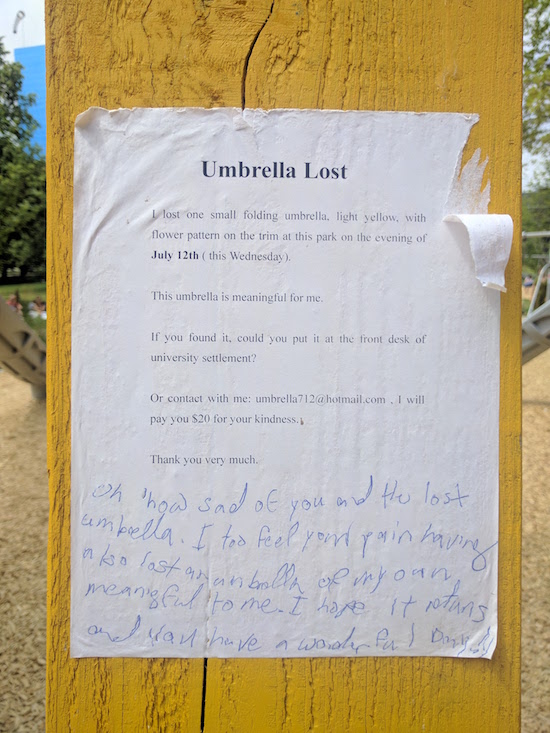
Avid readers here at Pickle Me This will remember that I’ve been keeping track of lost umbrellas in literature for some time now, whose authors have included EM Forster, Virginia Woolf, Cordelia Strube, Barbara Pym, and more. I think the sign I saw in a park yesterday counts as literature, don’t you? Particularly the line, “The umbrella is meaningful to me.” I know all about it; I’ve had many a meaningful umbrella in my time. Clearly I’m not the only one, as the sign’s response makes clear. Umbrella empathy, it seems, is endemic. Oh, I do hope her umbrella will be all right…
August 13, 2015
Three New Books About Loss
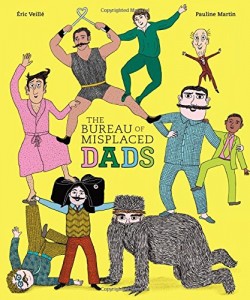 The Bureau of Misplaced Dads, by Eric Veille and Pauline Martin
The Bureau of Misplaced Dads, by Eric Veille and Pauline Martin
This book has a vintage vibe right down to its oranges, greens and yellows, the crosshatching, and that the illustrations remind me so much of Esphyr Slobodkina’s Caps for Sale—perhaps it’s the moustaches? It also is completely weird in that way picture books got away with back in the day. Utterly pointless, silly, absurd, and I mean it in the best way. (Maybe it’s just European?) It’s about a boy who loses his dad one morning and finds assistance at the Bureau of Misplaced Dads, where lost fathers go to wait for their children to retrieve them. (Most are in fairly good condition when they’re finally found.) Some are found same day, others have been waiting since the dawn of time. “The dads in striped sweaters hang out in the Ping-Pong room.” They aren’t allowed to play with the crocodiles, but otherwise they can do anything they please. There are two full-page spreads that are totally Wild Rumpus-inspired. The ending will satisfy anxious readers, but is just as strange as rest of it, which is to say that it involves a short cut in which the boy climbs up the ladder beside an old dog, and arrives home via a hole in the floor. Hooray for short-cuts, and books rich with strange surprises.
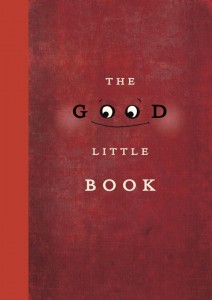 The Good Little Book, by Kyo Maclear and Marion Arbona
The Good Little Book, by Kyo Maclear and Marion Arbona
I was rhapsodizing about Kyo Maclear a couple of weeks back because she’s managed to have two books out this fall that are very different and both excellent—she’s so good! The Good Little Book is a gorgeous package, its deliberate graffiti’d bookplate and endpapers, the whole thing beautifully designed to emphasize the book as object, which connects to the story. About one book in particular that is “neither thick nor thin, popular nor unpopular. It had no shiny medals to boast of. It didn’t even own a proper jacket.” (Get it? Jacket?) But this little book finds its way into one reader’s heart, and there it stays, accompanying the reader everywhere, changing his life. Until one day the book gets lost. The boy who lost it fearing for his book in the wild, seeing as it doesn’t even have a jacket. (Ha!) But a good book, the boy learns, never really goes away, and the book itself, we learn, continues to be loved and read, as good books do. “Is this the end of the book?” is the question inked upon the final pretty floral endpaper, to which this reader knows the answer: never!
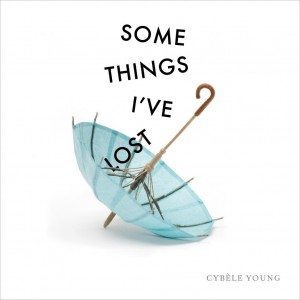 Some Things I’ve Lost, by Cybele Young
Some Things I’ve Lost, by Cybele Young
As one who has long been intrigued by the secret lives of things, I’m intrigued by Cybele Young’s new book, which is inspired by her paper sculptures. A set of keys, a roller skate, an umbrella (and I do have a fascination with literary lost umbrellas), a pair of glasses. Things that disappear (and I’ve written about that too). But: “Where there’s an end there’s a beginning,” Young’s book’s introduction tells us. “Things grow. Things change.” The books’ transformations are abstract enough as to be unpredictable and engaging, and budding artists might be inspired to make their own “some things” new.
January 25, 2011
It was striped
“‘Have you seen my umbrella?’ a hyper Jamaican woman demands.
‘No.”
‘I left it right here.’ She points where I’m sitting.
‘I didn’t see it,’ I say.
‘I left it right here. Did you see it?’ The cuffs of her jacket are frayed, buttons are missing. I look behind and under my chair, go back to Emily.
The earth reversed her Hemispheres–
I touched the Universe–
And back it slid– and I alone–
A Speck upon a Ball–
Went out upon Circumference–
‘Have you seen my umbrella?’ the Jamaican woman demands of another bottom-feeder. ‘I left it right here.’ She points at me again, and I know she thinks I’ve swiped it. ‘It was striped.’
‘I can’t see it anywhere,’ I say. ‘Sorry.’
‘I left it right here. Striped.’
— from Lemon by Cordelia Strube
August 8, 2010
From what I read over the past week
Another literary lost umbrella(!), this time in Barbara Pym’s thoroughly enjoyable A Few Green Leaves: “It was not until she had gone too far along the street to turn back that Emma realised that, possibly in the stress of some obscure emotion, she must have taken Claudia’s umbrella in mistake for her own. And it was an umbrella of inferior quality. She wondered what the possible significance of that could be.”**
(**Update: Upon reading Pym’s autobiography, I learned this was based on an actual incident reported in her notebook, which, I think, constitutes *another* literary lost umbrella)
And then I fell into At Large and At Small by Anne Fadiman, my one complaint about being that its lovely cover got a bit manky when I used it to kill a mosquito. “One of the convenient things about literature is that, despite copyrights– which in Emerson’s case expired long ago– a book belongs to the reader as well as to the writer. The greater the work, the wider the ownership, which is why there are such things as criticism, revisionism and Ph.D. dissertations. I will not ask the sage of Concord to rewrite his oration. He will forever retain the right to speak his own words and to mean what he wished to mean, not what I would wish him to mean. But I will retain the right to recast Man Thinking in my mind as Curious People Thinking because time has passed and the tent has grown larger.”
Then I turned to Margaret Drabble’s The Millstone (except that my copy is called Thank You All Very Much, which was the title of a film upon which The Millstone was based). “I was not of course treated to that phrase which greets all reluctant married mothers, “I bet you wouldn’t be without her now, so often repeated after the event in the full confidence of nature, because I suppose people feared I might turn on them and say, Yes I certainly would, which would be mutually distressing for questioner and me. And in many ways I thought that I certainly would prefer to be without her, as one might prefer to lack beauty or intelligence or riches, or any other such sources of mixed blessing and pain. Things about life with a baby drove me into frenzies of weeping several times a week, and not only having milk on my clean jerseys. As so often in life, it was impossible to choose, even theoretically, between advantage and disadvantage, between profit and loss: I was up quite unmistakably against No Choice. So the best one could do was put a good face on it, and to avoid adding to the large and largely discussed number of sad warnings that abounded in the part of the world that I knew.”
Next was Zadie Smith’s Changing My Mind, which was beautiful and difficult, and uncannily channelling Joan Didion in spots. “‘Blackness’, as [Zora Neale Hurston] understood it and wrote about it, is as natural and inevitable and complete to her as, say, “Frenchness” is to Flaubert. It is also as complicated, as full of blessings and curses. One can be no more removed from it than from one’s arm, but it is no more the total measure of one’s being than an arm is.”
And finally, Darwin’s Bastards, which I’m not finished yet, but how (in particular), I’ve loved short stories by Jessica Grant, Douglas Coupland, Mark Anthony Jarman, Timothy Taylor, and Elyse Friedman.
Such fun. Honestly, my vacation books could not have been more perfectly chosen.
